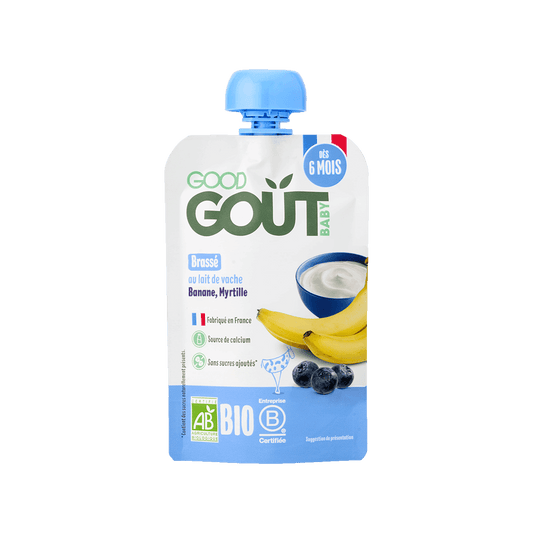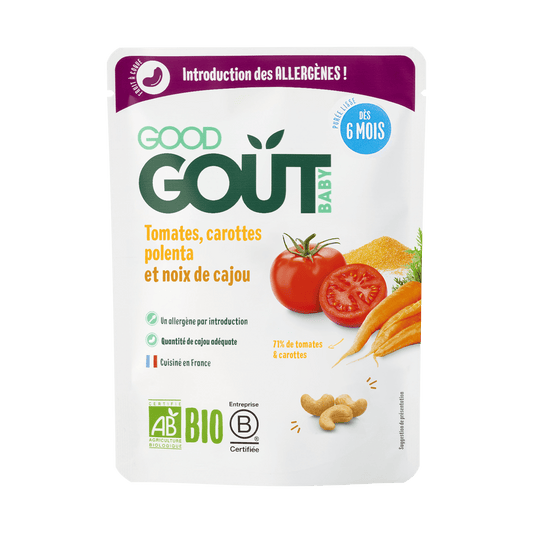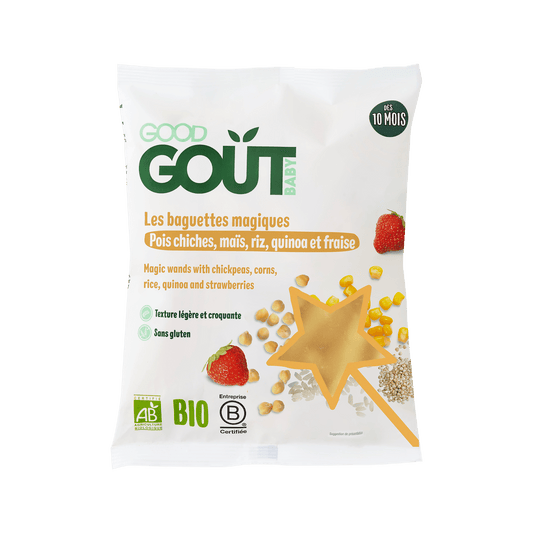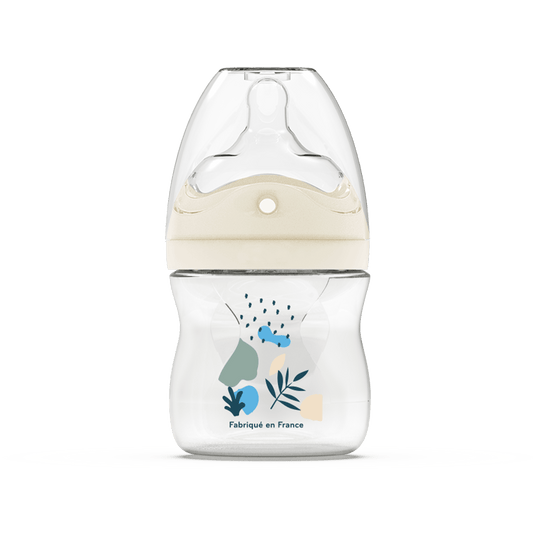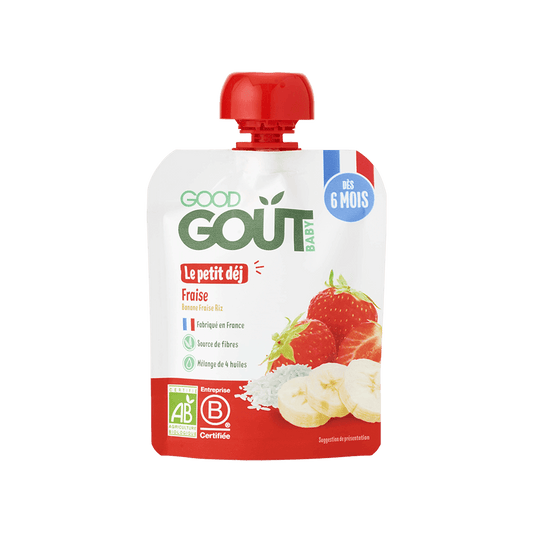Plain, fruit, stirred... When it comes time to give your baby their first yogurt (what age should you start with baby yogurt, by the way?), you don't know where to start. The difference between classic yogurt and baby yogurt isn't always obvious to non-experts. It's time for us to shed some light on the matter!
Baby yogurts: what exactly are they? How are they different from traditional yogurts? Why give special yogurts to babies?
First of all, unlike conventional yogurts, baby yogurts are subject to regulations relating to infant nutrition (Directive 2006/125/EC). These regulations impose more stringent specifications than traditional food, particularly with regard to food contaminants (these natural or synthetic substances that can be found in food and result from cultural practices or production processes, such as additives, substances from materials in contact with food, etc.) whose maximum tolerated thresholds for infant food are much lower than for conventional food.
Then, from a nutritional standpoint, baby yogurts are more balanced. Their sugar, fat, and protein content is adapted to babies' needs and helps avoid excess. Indeed, conventional yogurts are often too rich in protein for an infant. However, numerous studies have shown that excess protein during the first two years of life is associated with an increased prevalence of childhood obesity*. As a result, baby yogurts offer definite nutritional benefits.
Finally, baby yogurts have the particularity of being stored at room temperature. This is the reason why they cannot be called "yogurt": the pasteurization of fermented milk, necessary for this method of preservation, removes the lactic ferments usually contained in yogurt (Lactobacillus bulgaricus and Streptococcus thermophilus) and which determine the name "yogurt".
At what age should I start giving baby yogurt?
Baby yogurts can be given from 6 months . Babies are usually offered yogurt for dessert at lunch or as a snack. While it is common to give baby yogurt during a meal without a bottle, it does not replace breast milk! We prefer it without added sugars, the natural sugar in the fruit is enough to make it pleasant for our little ones' palates!
What is the difference between our stirred yogurts and other baby yogurts?
At Good Goût, we make it a point of honor to offer your child products that are tasty and contribute to their development, while being nutritionally appropriate. This is why we have worked based on a dual specification: the current regulations relating to infant nutrition and the nutritional recommendations of a panel of early childhood nutrition professionals. All our mixed recipes have been developed on this basis and are adapted to the needs of babies.
Our 90g format meets nutritionists' recommendations for protein intake per serving, as well as your child's appetite thanks to the addition of ingredients that help keep you full. Our mixed bowls and pouches are the perfect balance of mixed fruit, cereal, and fruit to meet your child's needs, whether for dessert or snack, according to nutrition professionals' recommendations. In addition to their sweetness, fruit provides natural sugar, allowing us to offer recipes without added sugar. The cereals, meanwhile, provide smoothness and flavor to awaken your child's appetite.
They're also more nutritionally and taste-wise interesting than the commonly used starch. What's more, our stirred yogurts are made exclusively from fermented milk, which is like real yogurt. We don't add any milk or milk powder, for even more sweetness.
Finally, like all other Good Goût products, our brews meet organic farming specifications. This allows us to guarantee your child healthy products that are good for the planet: none of our ingredients have been mistreated by GMOs, pesticides, or other chemical fertilizers during their breeding or cultivation.
When should I start giving my baby regular yogurt? Which yogurt should I use instead of a bottle?
There's no consensus on the issue: some pediatricians recommend waiting until 7-8 months for a baby to eat regular yogurt, while others allow it a little earlier. However, most agree that baby yogurt is more suitable for young babies (if you're wondering why, reread the beginning of the article!).
Yogurt is not a substitute for a bottle or breastfeeding, and it is strongly recommended that dairy products not be considered a substitute for infant formula or breastfeeding. However, from a certain age, as the number of bottles per day decreases, it is possible to offer dairy products to your baby during meals without a bottle or breastfeeding.
So now that baby yogurts no longer hold any mysteries for you, give it a try !
*Source: Michaelsen & Greer, American Journal of Clinical Nutrition, 2014

